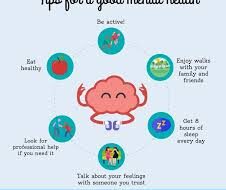

Introduction
“Educational equity is about learning new things and growing as a person. It helps us understand the world better and become smarter. Let’s explore how education shapes our lives and makes us better individuals.“
Educational equity stands as the cornerstone of societal progress, shaping individuals, communities, and the world at large. This comprehensive description offers a multifaceted exploration of education, encompassing its purpose, methods, and broader impact on society.
The Teacher-Student Connection:
At the heart of education equity lies the dynamic relationship between teachers and students. Beyond imparting knowledge, teachers serve as mentors, guides, and role models. Their ability to connect with students on a personal level fosters trust, engagement, and a sense of belonging. Through meaningful interactions, teachers inspire curiosity, instill confidence, and ignite a passion for learning that extends far beyond the classroom Educational Equity: Bridging Gaps and Building Futures”
Nurturing Social and Emotional Development:
Educational equity goes beyond academics to encompass the holistic development of individuals. By providing opportunities for collaboration, communication, and empathy, education nurtures essential social and emotional skills. In classrooms and educational settings, students learn to navigate diverse perspectives, resolve conflicts, and cultivate a sense of empathy and understanding. These interpersonal skills are invaluable in fostering healthy relationships
Fostering Citizenship and Civic Engagement:
An educated populace is essential for the functioning of a democratic society. Educational equity plays a pivotal role in equipping individuals with the knowledge, critical thinking skills, and civic awareness needed to actively participate in civic life. Through civics education, students learn about their rights, responsibilities, and the mechanisms of democratic governance. They develop a sense of agency, advocacy, and a commitment to contributing positively to their communities.
Conclusion:
As we navigate the complexities of the 21st century, it’s essential to recognize the indispensable role of the human element in education. Whether through meaningful teacher-student connections, the nurturing of social and emotional development, or the fostering of citizenship and civic engagement, educational equity has the power to transform individuals and society alike. By embracing the human touch in education,
Readmore
Furthermore, the COVID-19 pandemic has laid bare the vulnerabilities of education systems worldwide, exacerbating existing inequities and disrupting learning for millions of students. As we emerge from the crisis, there is an urgent need to reimagine education and embrace innovative approaches that harness the power of technology while preserving the human element of learning.















